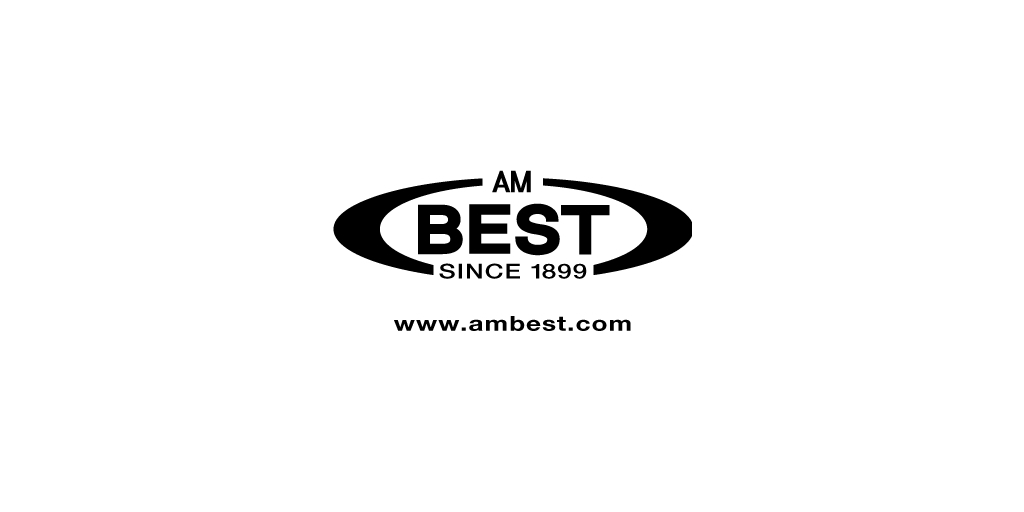Best Starter Trucking Company: Your Guide to Launching a Successful Trucking Career
Best Starter Trucking Company: Your Guide to Launching a Successful Trucking Career cars.truckstrend.com
Embarking on a career as a professional truck driver is an exciting prospect, offering freedom, good earning potential, and the chance to see the country. However, the initial steps into this demanding yet rewarding industry are crucial. The Best Starter Trucking Company isn’t just a catchy phrase; it represents the foundational choice that can profoundly impact a new driver’s safety, skill development, financial stability, and overall career trajectory.
Choosing the right first company is paramount because it sets the stage for your entire professional life on the road. A strong start with a supportive, reputable company can provide invaluable training, build confidence, and help you establish a solid driving record. Conversely, a poor choice can lead to frustration, inadequate training, safety concerns, and even premature career burnout. This comprehensive guide will walk you through what defines a great starter trucking company, what to look for, and how to make an informed decision that paves the way for a successful and fulfilling career.
Best Starter Trucking Company: Your Guide to Launching a Successful Trucking Career
Why Your First Trucking Company Matters So Much
The company you choose for your inaugural trucking experience is far more than just an employer; it’s your first training ground, your introduction to industry standards, and the entity that shapes your initial perception of the trucking lifestyle. Here’s why this choice carries significant weight:
- Foundation for Skills and Habits: Your first company will instill the driving habits, safety protocols, and operational procedures that will stick with you for years. Quality training ensures you learn the right way from the beginning, while poor training can lead to dangerous shortcuts or ingrained inefficiencies.
- Impact on Driving Record: A good starter company emphasizes safety and compliance, helping you maintain a clean driving record from day one. This record is vital for future employment opportunities and insurance rates.
- Training Quality and Support: Many entry-level drivers need to complete CDL training or require refresher courses. The best starter companies offer structured, comprehensive, and often paid training programs, pairing new drivers with experienced mentors who provide hands-on guidance.
- Financial Stability and Pay Structure: While new drivers don’t command top pay, a reputable company will offer fair starting wages, clear pay structures (e.g., cents per mile, percentage), and reliable payroll. Understanding how you’re paid and having a steady income is essential.
- Company Culture and Work-Life Balance: The culture of your first company can significantly influence your morale and job satisfaction. A supportive environment that values its drivers and offers predictable home time schedules can prevent burnout and foster a positive attitude towards the profession.

Key Characteristics of a Great Starter Company
When evaluating potential first employers, look for these defining characteristics that signal a commitment to new driver success:
Comprehensive Training Programs
The hallmark of a great starter company is its investment in new drivers. Look for:
- CDL Sponsorship/Reimbursement: Many companies offer programs to help you obtain your CDL or reimburse tuition fees.
- Paid Orientation and Training: You should be compensated for your time during orientation and during your over-the-road (OTR) training period with a trainer.
- Experienced Trainers: Ensure trainers are seasoned professionals with good safety records and a genuine interest in mentoring.
- Refresher Courses: For those who obtained their CDL but haven’t driven recently, a company offering refresher training is a huge plus.

Modern and Well-Maintained Equipment
Driving safe, reliable, and comfortable equipment is crucial for new drivers.
- Newer Fleet: Companies with newer trucks (typically 1-3 years old) experience fewer breakdowns and often come with modern safety features (e.g., collision mitigation, lane departure warnings).
- Regular Maintenance: Inquire about their maintenance schedule and how quickly breakdowns are addressed.
Supportive Company Culture
A positive work environment can make all the difference.
- Mentorship Programs: Beyond formal training, a culture that encourages experienced drivers to mentor new hires.
- Open Communication: A company where drivers feel heard and can easily communicate with dispatch, safety, and management.
- Driver Retention Focus: Companies with low turnover rates often indicate high driver satisfaction.
Fair Compensation & Benefits
While starting pay may not be industry-leading, it should be competitive and transparent.
- Clear Pay Structure: Understand how you’ll be paid (e.g., cents per mile, percentage of load, hourly for local). Inquire about detention pay, layover pay, and stop pay.
- Comprehensive Benefits: Health insurance (medical, dental, vision), life insurance, 401(k) or other retirement plans, paid time off.
- Performance Incentives: Bonuses for safety, fuel efficiency, or on-time delivery.
Strong Safety Record & Policies
Safety should be non-negotiable.
- Excellent CSA Scores: Check the Federal Motor Carrier Safety Administration (FMCSA) CSA (Compliance, Safety, Accountability) scores, particularly for vehicle maintenance and unsafe driving categories.
- Robust Safety Culture: The company should demonstrate a genuine commitment to safety through regular training, clear policies, and immediate action on safety concerns.
Predictable Route Types & Home Time
Consider your personal needs and preferences.
- Over-the-Road (OTR): Long hauls, less frequent home time (weeks out).
- Regional: Driving within a specific multi-state region, often allowing weekly home time.
- Local: Daily home time, typically dedicated routes.
- Guaranteed Home Time: Some companies offer guaranteed days off, which is a major benefit for work-life balance.
Opportunities for Growth
Look for companies that invest in your future.
- Specialized Endorsements: Support for obtaining HazMat, Tanker, or Doubles/Triples endorsements.
- Owner-Operator Programs: If you aspire to own your truck, look for companies with transparent and fair lease-purchase or owner-operator programs.
- Career Progression: Paths to become a trainer, dispatcher, or move into management.
Types of Starter Companies
The trucking industry is diverse, and so are the companies within it. Here are common types suitable for new drivers:
-
Large National Carriers: These are often the most popular choice for new drivers.
- Pros: Highly structured training programs (some even offer CDL training), modern and large fleets, diverse route options (OTR, regional, dedicated), comprehensive benefits, and ample resources. They often have established driver support systems.
- Cons: Can feel less personal, strict rules and procedures, starting pay might be lower than some specialized carriers, and you might be just a number.
- Examples: Schneider, Werner Enterprises, Swift Transportation (now part of Knight-Swift), Roehl Transport, Prime Inc.
-
Medium-Sized Regional Carriers:
- Pros: Often more personal, specialized routes within a region, potentially better home time than large OTR carriers, and you might build stronger relationships with management.
- Cons: Fewer resources for training or newer equipment compared to national giants, less diverse route options, and benefits packages might not be as extensive.
-
Specialized Carriers (e.g., Tanker, Flatbed, Reefer): While many large carriers have specialized divisions, some companies focus solely on these niche areas.
- Pros: Can offer higher pay potential once you gain experience in a specialized field, often more challenging and engaging work.
- Cons: Training can be more demanding, require additional endorsements (e.g., HazMat for tankers), and the work environment might be more physically demanding (e.g., tarping flatbeds). Some may prefer drivers with a few months of general experience before specializing.
How to Choose Your Best Starter Company: A Practical Guide
Making the right choice requires diligent research and self-assessment.
-
Self-Assessment: Define Your Priorities.
- What kind of driving do you want to do (OTR, regional, local)?
- How important is home time to you?
- What are your financial goals?
- Are you willing to specialize early on?
- Do you prefer a highly structured environment or more autonomy?
-
Research Thoroughly.
- Online Reviews and Forums: Websites like The Truckers Report, Indeed, Glassdoor, and Reddit’s r/Truckers community offer driver reviews and discussions. Look for patterns, not just isolated complaints.
- Company Websites: Explore their careers sections, training programs, and benefits.
- FMCSA SAFER System: Check a company’s safety record and statistics.
- Direct Contact: Call their recruiting department. Be prepared with questions.
-
Ask the Right Questions During Interviews.
- "What does your training program entail, and how long is it?"
- "Is the training paid, and what is the pay rate during training?"
- "What is the average starting pay per mile (or percentage) for new drivers?"
- "What are the typical routes and home time expectations for new drivers?"
- "What kind of equipment will I be driving, and what’s its average age?"
- "What benefits package do you offer, and when do they become effective?"
- "What is your driver turnover rate, and why do drivers typically leave?"
- "What opportunities for advancement or specialization are available?"
-
Talk to Current and Former Drivers.
- If possible, speak with drivers who currently work for or have recently left the company. Their firsthand accounts can provide invaluable insights into the daily realities of working there.
-
Understand Contracts and Agreements.
- Training Contracts: Many companies require you to sign a contract agreeing to stay for a certain period (e.g., 6-12 months) after training, or you’ll owe them for the training cost. Read these carefully.
- Sign-on Bonuses: Understand the terms for receiving the full bonus (often paid out over time).
- Lease-Purchase Programs: Be extremely cautious. For new drivers, these are almost always a bad idea. Focus on being a company driver first.
-
Consider Location.
- How close are their terminals to your home? This can impact home time and travel for orientation/training.
- Do they have routes that regularly pass through or originate near your desired home location?
Potential Challenges & Solutions for New Drivers
Starting a trucking career comes with its own set of hurdles, but with preparation, they can be overcome.
- Loneliness and Isolation: OTR driving can be solitary.
- Solution: Stay connected with family/friends through calls and video chats. Join online trucking communities or social media groups for support.
- Time Management and Fatigue: Adhering to Hours of Service (HOS) rules and managing rest.
- Solution: Prioritize sleep, learn to manage your time effectively for breaks, meals, and exercise. Don’t push yourself when tired.
- Navigating New Routes and Equipment: Getting used to big rigs and unfamiliar roads.
- Solution: Utilize truck-specific GPS, pre-plan your routes thoroughly, and don’t hesitate to ask for help from dispatch or experienced drivers. Practice backing and maneuvering in safe areas.
- Financial Management: Variable paychecks and expenses on the road.
- Solution: Create a budget, track your spending, and build an emergency fund. Understand all deductions on your pay stub.
- Dealing with Stress: The demands of the job can be stressful.
- Solution: Develop healthy coping mechanisms: exercise, listen to audiobooks/podcasts, practice mindfulness, and maintain open communication with your support system.
- Rigors of the Training Period: It can be intense and demanding.
- Solution: Be patient with yourself and your trainer. Ask questions, take notes, and absorb as much knowledge as possible. This period is temporary and vital for your long-term success.
Comparative Overview: Common Starter Trucking Company Offerings
This table provides a generalized comparison of what new drivers might expect from some well-known large carriers. Specific offers can vary.
| Feature | Schneider National | Werner Enterprises | Swift Transportation (Knight-Swift) | Roehl Transport | Prime Inc. |
|---|---|---|---|---|---|
| Training Program | Paid CDL training/tuition reimbursement, OTR training with trainer. | Paid CDL training/tuition reimbursement, OTR training with mentor. | CDL training/tuition reimbursement, 1:1 OTR training. | Paid CDL training (Get Your CDL Program), 1:1 OTR training. | Paid CDL training (PADM program), 1:1 OTR training. |
| Starting Pay (Avg. CPM for New Drivers) | ~$0.45 – $0.55+ (dry van), often higher for specialized. | ~$0.40 – $0.50+ (dry van), performance incentives. | ~$0.40 – $0.50+ (dry van), experience-based. | ~$0.45 – $0.55+ (dry van), performance pay, higher for flatbed. | ~$0.45 – $0.55+ (flatbed/reefer), performance pay. |
| Home Time (Typical) | OTR: 10-14 days out; Regional/Dedicated: Weekly/Bi-weekly. | OTR: 10-14 days out; Regional/Dedicated: Weekly/Bi-weekly. | OTR: 10-14 days out; Regional/Dedicated: Weekly/Bi-weekly. | OTR: 7-14 days out (various programs like 7/4-7/3). | OTR: 3-4 weeks out for initial; Regional options available later. |
| Equipment Age | Relatively modern fleet (avg. 2-3 years). | Modern fleet (avg. 2-3 years). | Large, modern fleet (avg. 2-3 years). | Newer fleet (avg. 1-2 years). | Modern fleet (avg. 2-3 years). |
| Key Benefits/Pros | Strong safety culture, diverse freight, good benefits, many dedicated accounts. | Comprehensive benefits, varied freight, good reputation for training. | Extensive network, diverse opportunities, large training capacity. | "Your Choice" pay plan, excellent safety record, high driver satisfaction. | Strong pay potential for reefer/flatbed, good equipment, stable company. |
| Considerations/Cons | Can feel corporate, high volume of drivers, some may find rules strict. | Can have higher turnover in some divisions, sometimes less personal. | Very large, can feel impersonal, high volume of new drivers. | Requires discipline for pay plan, not as many local options for new drivers. | Long initial OTR periods, mostly reefer/flatbed, stricter dress code. |
Note: Pay rates are estimates and can vary based on division, experience, and current market conditions. Always confirm directly with the recruiter.
Frequently Asked Questions (FAQ)
Q1: How long should I stay with my first trucking company?
A1: Most industry experts recommend staying with your first company for at least 6-12 months. This allows you to gain valuable experience, establish a stable work history, and fulfill any training contract obligations. Leaving too soon can make it harder to secure future employment.
Q2: Do starter companies offer paid CDL training?
A2: Many large starter companies offer paid CDL training programs or tuition reimbursement. These programs typically involve a training contract where you agree to work for the company for a set period (e.g., 6-12 months) in exchange for the training.
Q3: What’s the average starting pay for a new truck driver?
A3: Starting pay for new CDL holders typically ranges from $0.35 to $0.55 per mile, depending on the company, freight type, and region. Annual gross income for a first-year OTR driver can be anywhere from $40,000 to $60,000, not including bonuses or benefits.
Q4: Is it better to start with a large or small company?
A4: For most new drivers, starting with a large national carrier is often recommended due to their structured training programs, modern equipment, and comprehensive benefits. Small companies may offer a more personal feel but often lack the resources and training infrastructure for absolute beginners.
Q5: What should I look out for in a training contract?
A5: Carefully review the duration of the contract, the amount you would owe if you leave early, and how that amount decreases over time. Ensure you understand all clauses regarding training costs, pay during training, and any sign-on bonus terms. Avoid contracts that seem overly restrictive or have exorbitant penalties.
Conclusion
Choosing the Best Starter Trucking Company is one of the most critical decisions you’ll make as you launch your career on the road. It’s not about finding the highest paying job right out of the gate, but rather securing a position that offers comprehensive training, a supportive environment, modern equipment, and a genuine commitment to safety. By diligently researching, asking the right questions, and understanding your own priorities, you can select a company that provides a solid foundation for skill development, fosters good habits, and sets you up for long-term success and satisfaction in the dynamic world of trucking. Drive safe, and make an informed choice for your future.







